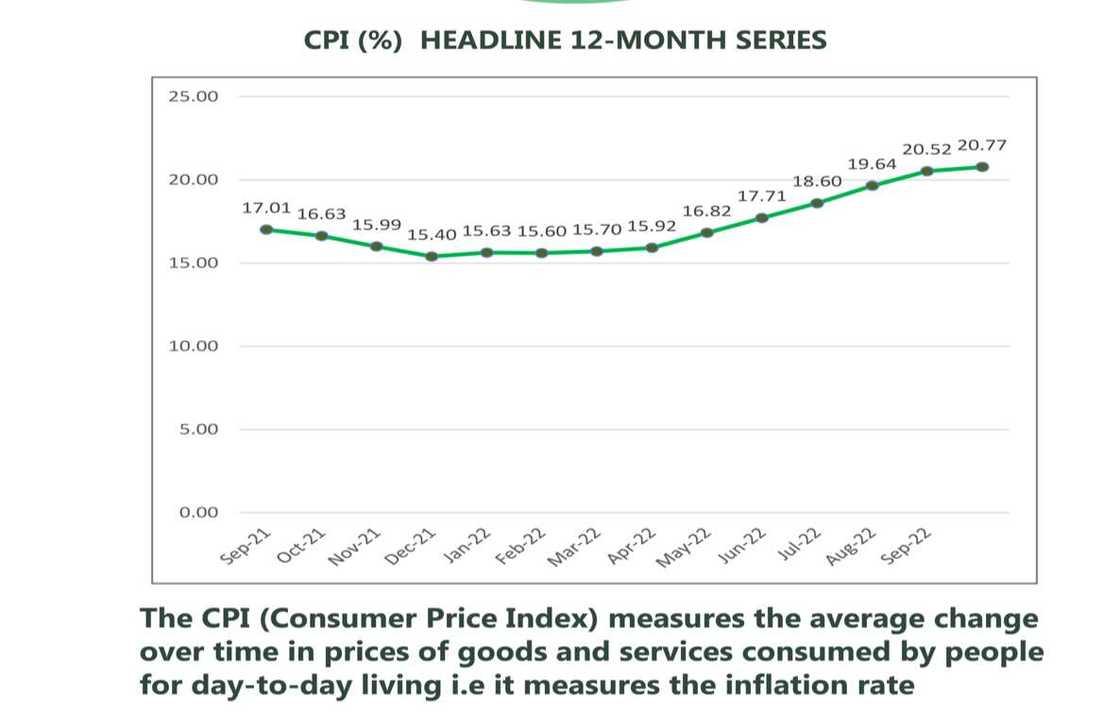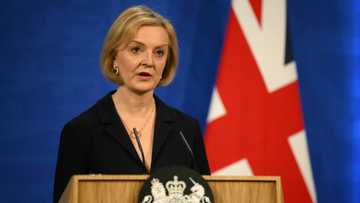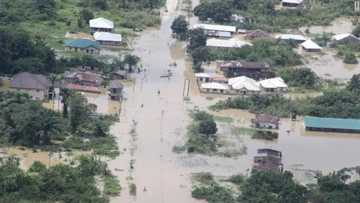Inflation Eats Into Nigerians’ Savings in Commercial Banks Ahead of Holiday Shopping
- The rate at which the prices of goods and services are increasing has reached a new high
- The latest data from the National Bureau of Statistics shows inflation figures are now at a 17-year-high in September
- The rising inflation has eaten heavily to savings of Nigerians in commercial banks ahead of holiday shopping
PAY ATTENTION: Click “See First” under the “Following” tab to see Legit.ng News on your Facebook News Feed!
Nigerians are in for a tougher holiday season due to rising inflation, which has eroded their savings.
The National Bureau of Statistics announced on Tuesday, October 17, 2022, that Nigeria's inflation rate increased to 20.77 per cent in September.
The last time Nigeria's headline inflation rate exceeded 20% was in 2005, 17 years ago.

Source: Facebook
How Inflation affects Savings
The Central Bank of Nigeria recently directed banks to raise the interest rate on savings deposits to 4.2%.
PAY ATTENTION: Share your outstanding story with our editors! Please reach us through info@corp.legit.ng!
This means that if a bank customer has N100 in a savings account paying 4.2% interest. The bank customer will have at least N104 in his account after a year.
However, with a 20.77% inflation rate, a Nigerian would need at least N120 to have the same purchasing power.
Yes, a bank customer has made money, but inflation has reduced his or her purchasing power.
This is because you will lose money if your savings do not grow at the same rate as inflation.
Expert speaks on impact of inflation rate
Financial experts are concerned that Nigeria's rising inflation rate is affecting Nigerians' living standards.
According to Paul Alaje, a senior economist with SPM Professionals, the high inflation rate means that someone who had N100,000 this time last year has less than N85,000 this year for no crime.
Mr Alaje stated that this situation may jeopardize several families because some members may lose their jobs due to their employees' failure to pay them due to a drop in sales.
Furthermore, Ben Ekeyi, a public financial management consultant, stated that Nigeria's inflation rate has harmed Nigerians' purchasing power in various ways.
Ekeyi noted that one of the impacts includes reduced ability to purchase needed and required goods and services, especially where there was no corresponding increase in income.
States with the highest food inflation in Nigeria
In another report Legit.ng revealed that food inflation remained the biggest arrowhead for inflation in Nigeria.
According to the report, Nigerians were forced to increase their food budgets across the country in September 2022.
While the problem is widespread, some states experienced the highest inflation levels.
Source: Legit.ng




